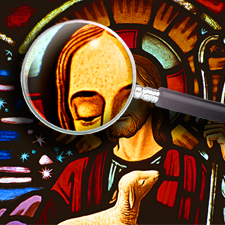Can we use the tools of science to explore the realm of faith? Dr Darrel R. Falk, Professor of Biology at Point Loma Nazarene University, San Diego, asks if Intelligent Design arguments will ultimately assist the cause of evangelism?
Scientific research programs depend upon the regularity of that which they are studying. They seek to understand the rules that govern the processes that are being investigated. Christians believe that God, the Creator, set those rules in place to begin with, so when studying nature, scientists are studying God's rules. Ironically, however, so long as the laws of the natural world are operating with complete regularity, it is impossible to prove scientifically that they do so because of the activity of God.
 By definition, the detection of the supernatural depends upon suspension of the natural rules for a time, so that the God of the supernatural can work in whatever way and for whatever reason that God chooses to work. For example, the reason why many people of faith believe that Peter was able to walk on water was because the Law of Gravity was suspended as long as Peter kept his eyes on Jesus. And the reason that Moses staff turned into a snake was because the supernatural God of Scripture wanted to make a point to the skeptical Hebrew nation.
By definition, the detection of the supernatural depends upon suspension of the natural rules for a time, so that the God of the supernatural can work in whatever way and for whatever reason that God chooses to work. For example, the reason why many people of faith believe that Peter was able to walk on water was because the Law of Gravity was suspended as long as Peter kept his eyes on Jesus. And the reason that Moses staff turned into a snake was because the supernatural God of Scripture wanted to make a point to the skeptical Hebrew nation.
If scientific research depends upon the regularity of the rules by which nature operates, should one expect it will be possible to use these tools to study that which may work without decipherable rules? Should one expect that it will be possible to detect the activity of a Creator about whom it is written: "How unsearchable his judgments, and his paths beyond tracing out!" Who has known the mind of the Lord?" (Rom 11:33b, 34).
The Biblical account of Creation begins by pointing to God's Spirit "hovering over the waters" and the Psalmist poses the great rhetorical question, "Where can I go from your Spirit, where can I flee from your presence?" If the supernatural action of God were to work so frequently and in such all-pervasive ways, should one expect it would be possible to measure this supernatural intervention, or to distinguish its manifestation in some manner from the absence of that intervention?
The growth of the Intelligent Design movement has been fueled in part by the belief that this approach works, that scientific data already-in-hand provides strong scientific evidence for the existence of an intelligent designer. How strong is that evidence?
This paper will touch on advances in science, and especially genetics, and explore the scientific weaknesses of the movement . It will also address the issue of why those who choose to believe in the God of Christian theology should not be surprised that a scientific research program of this sort would remain sterile.
Click here to listen to / download an MP3 of this lecture delivered by Professor Falk at Christ Church Anglican, St Ive's.
More material will also be available through CASE and ISCAST in MP3 format.




















